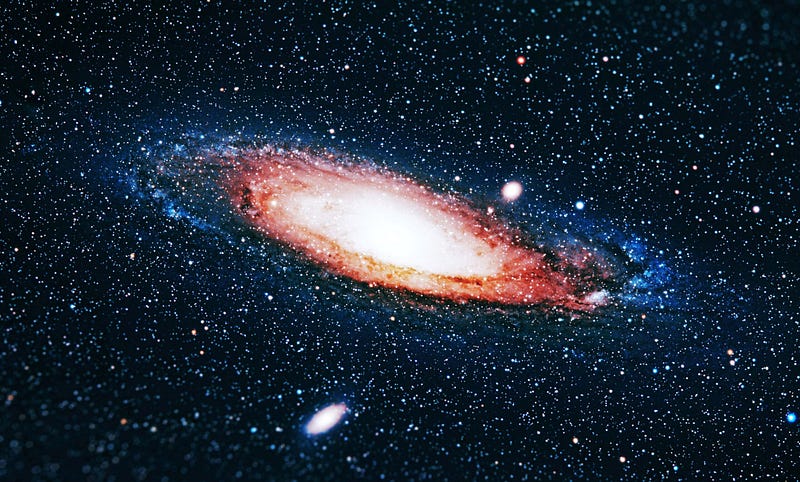A Clash of Worldviews: Modern vs Integral Perspectives
Written on
Understanding the Modern Worldview
In today's world, we find ourselves in a conflict between two dominant perspectives: the Modern and the Integral. The outcome of this ideological battle may significantly impact our planet's future. This discussion will delve into both viewpoints, applying them to current events such as the war in Ukraine and recent Supreme Court rulings that affect environmental regulations.
The Modern Perspective
The modern perspective, rooted in the Big Bang theory, suggests that our existence is devoid of inherent meaning or purpose, as is the universe itself. The cornerstone of this view can be traced back to the philosopher René Descartes, who famously stated, "I think therefore I am." This assertion emphasizes the individual as the focal point of existence—an "I" at the center of everything.
In this framework, the ego reigns supreme, leading to a society where individuals perceive themselves as isolated entities, disconnected from the greater whole. This mentality has become so ingrained over the last few centuries that many of us accept it without question, believing that the universe exists solely to serve our needs, including the Earth and its inhabitants. This self-centered worldview is a stark deviation from much of human history, rendering alternative perspectives almost unimaginable.
The Integral Perspective
Conversely, an emerging worldview known as "Integral" presents a more interconnected understanding of existence. This perspective emphasizes the integration of all beings, echoing pre-modern and Indigenous beliefs that prioritize the universe over the individual. The Integral worldview recognizes humans as an intrinsic part of a larger cosmic narrative, where meaning and purpose are derived from our connection to the whole.
By incorporating scientific insights from the modern creation narrative, the Integral viewpoint asserts that the universe is rich with significance and purpose. Unlike the modern perspective, which views existence as fragmented and disconnected, the Integral approach sees a spiritual universe where everything is interrelated.
For a deeper exploration of this concept, please refer to my brief book, The Magical Universe: Answering the Call of Climate Change for Personal and Global Transformation. A link can be found at the end of this article.
Connecting Worldviews to Current Events
Now, let's apply these contrasting worldviews to the recent Supreme Court ruling regarding the EPA and the ongoing conflict in Ukraine. The modern perspective of disconnection plays a significant role in both situations. In the case of the Supreme Court, we see a detachment from environmental realities, while in the Ukraine conflict, there's a disconnection among people.
Recently, the Supreme Court voted 6-3 to restrict the EPA's ability to regulate carbon emissions. Chief Justice John Roberts, in his majority opinion, acknowledged the gravity of the climate crisis yet leaned on a controversial legal argument to limit expert intervention. He stated, "Capping carbon dioxide emissions at a level that will force a nationwide transition away from the use of coal to generate electricity may be a sensible solution to the crisis of the day. But, a decision of such magnitude and consequence rests with Congress itself, or an agency acting pursuant to a clear delegation from that representative body."
Justice Elena Kagan, in her dissent, criticized this stance, emphasizing that the court lacks the expertise to tackle climate change. She remarked, "Whatever else this court may know about; it does not have a clue about how to address climate change." Kagan's dissent reflects the integral worldview, acknowledging the urgent need for action in the face of an existential threat.
The Ukraine Conflict and Its Broader Implications
Turning to the war in Ukraine, one could argue that the modern worldview has played a role in escalating tensions. This perspective fosters isolation and suspicion, leading to hostility towards perceived adversaries. The U.S., Europe, and Ukraine believed that imposing economic sanctions would hinder Russia's capacity to wage war, a strategy that has inadvertently caused widespread suffering beyond the immediate conflict.
Mark Malloch-Brown, president of the Open Society Foundations, recently highlighted the extensive repercussions of this war in a New York Times editorial titled "The World Needs More Than Crumbs From the G7’s Table." He pointed out the rising cost of food and energy, warning that over a billion people face hardship due to a "perfect storm" of crises exacerbated by the ongoing conflict.
In their mutual pursuit of dominance, both sides risk not only their futures but also endanger the well-being of countless others worldwide. This analysis is not about taking sides but rather understanding the deeper issues at play and how we might prevent similar crises in the future.
Towards a New Creation Story
If humanity were to embrace an integral perspective, we would recognize "the other" not as an adversary but as part of "us." Such a shift in mindset would make it challenging to justify conflict. While this notion may seem overly optimistic, clinging to the modern worldview will likely lead to further disasters.
As the saying goes, "We cannot solve a problem from the same mindset that created it." This is precisely the challenge we face today. Let us draw inspiration from pre-modern and Indigenous cultures to develop a planetary worldview rooted in our shared connections rather than divisions.
For more insights into this transformative perspective, I invite you to read my book, The Magical Universe: Answering the Call of Climate Change for Personal and Global Transformation. You can find the link below for further exploration.

The first video, "Intro to Integral Consciousness with Steve McIntosh," offers insights into the integral worldview and its implications for personal and global transformation.
The second video, "Ken Wilber - A Brief History of Integral," provides a historical context for understanding the integral perspective and its evolution.